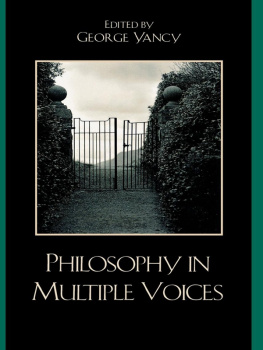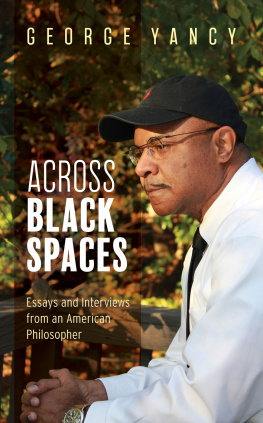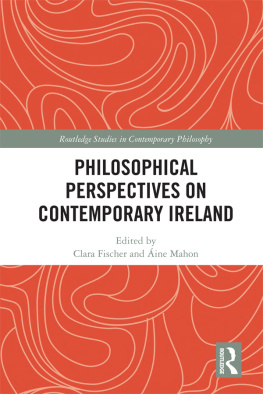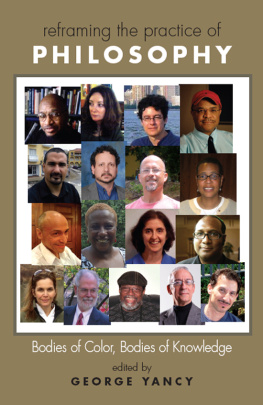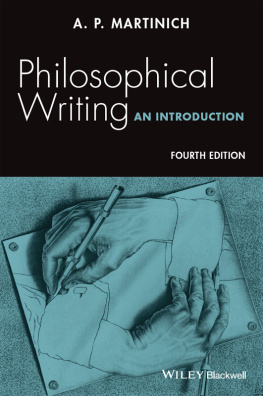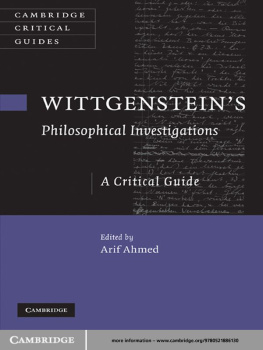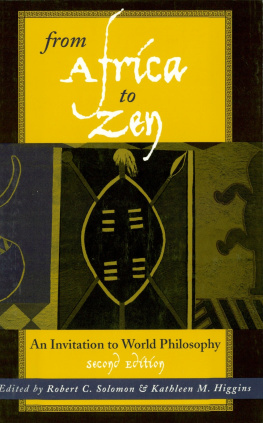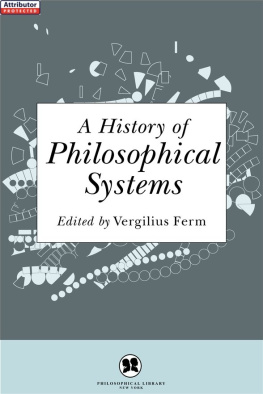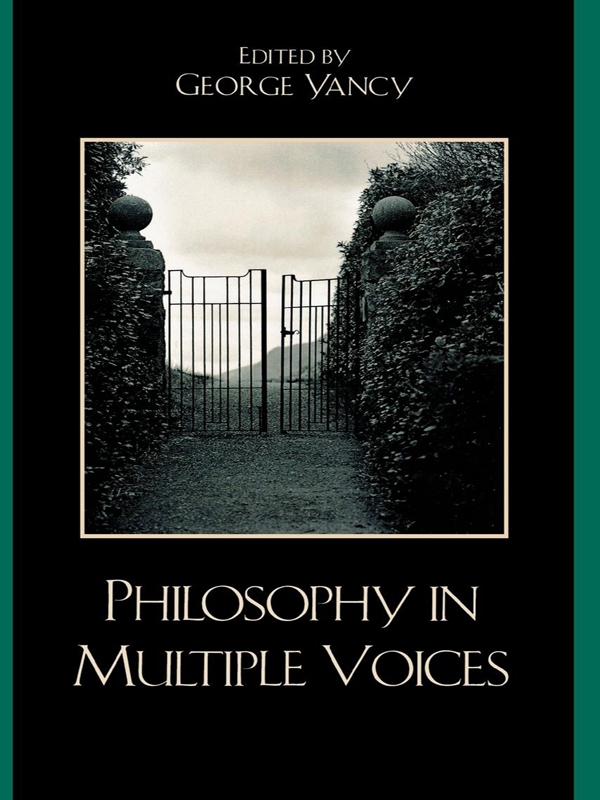Acknowledgments
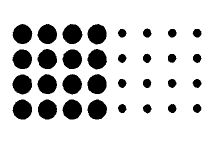
I WOULD LIKE TO THANK Dr. Ross H. Miller, currently senior editor at Rowman & Littlefield, for his patience, enthusiastic encouragement, candidness, and dedication to the fruition of this project. Eve DeVaro Fowler, former philosophy editor at Rowman & Littlefield, is thanked for her conversations and enthusiasm for this text. As an editor, she was always engaged and passionate about new ideas and how such ideas might contribute to the growth of knowledge. She knew how to make authors and editors feel strong and hopeful. I would also like to thank Emily W. Ross for her spiritedness, understanding, and cordiality. Ruth Gilbert, editorial assistant, is thanked for her professionalism and organizational skills. I would like to say thanks to Katherine Macdonald, Associate Production Editor, specifically in terms of her appreciation for detail and for moving this project along within a timely fashion. I would especially like to thank Terry Fischer, Managing Editor, for his indispensable assistance in the final stages of this project. I would like to thank all of the contributors for their enthusiasm and willingness to give of their time to produce such excellent contributions. I would especially like to thank Randall Halle for deciding to contribute to this project on such short notice. Thanks for your dedication and alacrity. Monique Roelofss assistance and critical insights were invaluable. Jim Swindal, colleague and chairperson of the philosophy department, and Francesco C. Cesareo, dean of the McAnulty College and Graduate School of Liberal Arts, are thanked for their continual interest in and support of my scholarly work. I would like to thank Fred Evans for his critical philosophical insights, friendship, and shared sense of political justice. Our work has philosophical overlap and key points of family resemblance. John McClendons advice, friendship, and scholarship speak for themselves. James Spady, as always, is thanked for his support and prescience regarding the importance of my own philosophical voice. I would like to extend a special thanks to Fred Evans, John Lachs, and Clevis Headley for the time they took to comment upon the introduction to this text. My mother, Ruth, Artrice, Carson, and Brother El are thanked for their support and love. My in-laws are thanked for their long-distance support, fun and extremely helpful visits, and abundant love for the Yancy boys. My family, Susan, Adrian, Gabriel, Elijah, and Joshua, the littlest one to whom this book is dedicated, are all thanked for their patience and persistence at dispelling the illusion that to be a productive philosopher one must remain secluded within the private domain of reflective thought.
About the Contributors
Lewis R. Gordon is Laura H. Carnell Professor of Philosophy and director of the Institute for the Study of Race and Social Thought and the Center for Afro-Jewish Studies at Temple University. He also is president of the Caribbean Philosophical Association. He is the author and editor of many books, and most recently coeditor, with Jane Anna Gordon, of Not Only the Masters Tools: African-American Studies in Theory and Practice (Paradigm Publishers) and A Companion to African - American Studies (Blackwell Publishers).
Jorge J. E. Gracia holds the Samuel P. Capen Chair in Philosophy and is State University of New York Distinguished Professor. He has written more than a dozen books and two hundred articles and has edited more than two dozen books. Among the books he has authored are Individuality: An Essay on the Foundations of Metaphysics (1988, Findlay Prize 1992), Philosophy and Its History: Issues in Philosophical Historiography (1992), A Theory of Textuality: The Logic and Epistemology (1995), Texts: Ontological Status, Identity, Author, Audience (1996), Metaphysics and Its Task: The Search for the Categorial Foundation of Knowledge (1999), HispaniclLatino Identity: A Philosophical Approach (2000), How Can We Know What God Means? The Interpretation of Revelation (2001), and Old Wine in New Skins: The Role of Tradition in Communication, Knowledge, and Group Identity (2003). He is the first philosopher in North America to publish an anthology of Latin American philosophy, the newest edition with Elizabeth Millan-Zaibert: Latin American Philosophy for the Twenty-First Century (2004). He works in metaphysics, hermeneutics, philosophical historiography, and the history of medieval and Hispanic philosophy. He is currently working on a book entitled Surviving Race, Ethnicity, and Nationality: A Challenge for the Twenty-First Century.
Randall Halle is Klaus W Jonas Chair of German Film and Cultural Studies in the Department of Germanic Languages and Literatures at the University of Pittsburgh. He received his PhD in 1995 from the University of WisconsinMadison. In addition to numerous articles, Professor Halle is the coeditor with Sharon Willis of the double special issue of Camera Obscura on Marginality and Alterity in Contemporary European Cinema (nos. 44 and 46). He is author of Queer Social Philosophy: Critical Readings from Kant to Adorno (University of Illinois Press, 2004). His research interests include queer theory, social philosophy, cultural studies, film theory, critical theory, and transnational studies. He has received an NEH fellowship for study at the University of Chicago and a DAAD fellowship for study at Cornell University. For the academic year 2004-2005 he was a senior fellow in the Berlin Program for Advanced German and European Studies at the Free University.
Sarah Lucia Hoagland is professor of philosophy and womens studies at Northeastern Illinois University in Chicago. She specializes in lesbian philosophy. She is author of Lesbian Ethics: Toward New Values. This books thesis is that the values from Anglo-European ethical philosophy undermine rather than promote lesbian connection. The book develops an ethics relevant to lesbians under oppression, one that avoids both blaming the victim and victimism, embraces the spirit of lesbian resistance, and encourages plurality. She is also coeditor of For Lesbians Only with Julia Penelope, and Re-reading the Canon: Feminist Interpretations of Mary Daly with Marilyn Frye. Sarah is a collective member of the Institute of Lesbian Studies in Chicago, a staff member of the Escuela Popular Nortea, and a research associate of the Philosophy Interpretation and Culture Center, Binghamton University in Binghamton, New York.
David Haekwon Kim is associate professor of philosophy at the University of San Francisco. Previously, he was director of Asian American Studies at the University of San Francisco and chair of the American Philosophical Association Committee on the Status of Asian and Asian American Philosophers and Philosophies. His research and teaching interests include ethics, political philosophy, philosophical psychology, and non-Western or hybrid philosophies (e.g. African American philosophy, modern Asian philosophy, and Asian American philosophy). He is editor of Passions of the Color Line (SUNY, forthcoming), and coeditor (with Ronald Sundstrom) of a forthcoming special edition of Philosophy Today on Asian America and American philosophy. His current work focuses on black and Asian conceptions of race and imperialism.

